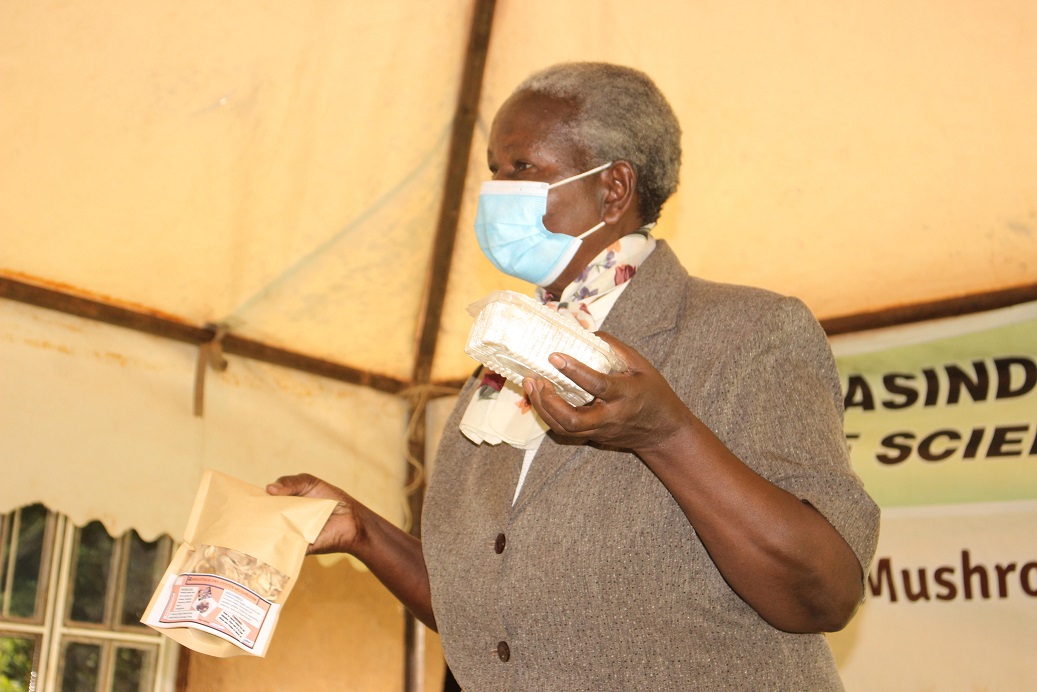“I started this research project in the year 2008/2009. The other scholars I have worked with in this project are Prof. Danstone Barasa, Prof. Silvery Otengi and Mr. Paul Kisiang’ani. The purpose of this project include sharing knowledge on appropriate technologies and environment for mushroom cultivation, encouraging production of value added mushroom products, sharing ideas in the development of mushroom marketing chains, encouraging positive interaction among researchers, farmers and policy makers as well as encouraging farmers to cultivate more mushrooms and ensuring its inclusion in their family meals,” stated Prof. Sigot.
Prof. Sigot further stressed that mushrooms are not only nutritious but also contain elements that boosts body immunity and improves blood circulation. She took the farmers through the such as the porridge floor produced by MMUST dubbed ‘MMUSTMUG’ and the dried mushrooms. Prof. Sigot also showed the farmers the procedure of preparing dried mushrooms. “The best way of preserving mushrooms is by drying, when dried, the mushrooms can last for a period of two years. Nevertheless, this does not lower their nutritional level,” added Prof. Sigot.

Prof. Asenath Sigot showing farmers mushroom value added products produced by MMUST
Speaking during the event, one of the farmers, Mr. Alex Andole noted that unlike other crops, mushroom production is not seasonal. It can be produced three or more times a year depending on the farmer’s production capabilities. He however emphasized that it is an easy crop to manage since it requires smaller spaces and can also be intercropped with other crops such as bananas.
MMUST’s mushroom production technician Mr. Francis Silingi demonstrated to the farmers’ appropriate technologies for spawn production and suitable substrates. He said that the use of wheat and rice straws are some of the best substrates for mushroom production. Mr. Silingi urged the farmers to utilize the local available materials in order to reduce the cost of production. “In order to reduce the cost of production, let us embrace appropriate technologies. This will ensure double returns and pocket friendly prices that will be suitable for both the producer and the consumer,” said Mr. Silingi.
Ms. Gladwell Ng’eno, a postgraduate student in the School of Agriculture, Veterinary Sciences and Technology (SAVET) attested to the importance of the project to her studies. She said that her focus is to develop alternative mushroom production methods.
This research project has benefited a number of students who have been able to start their own mushroom projects in their respective native regions. Some of the postgraduate students present during the event included Mr. Caleb Sagam, Mr. Zadock Maingi, Ms. Mercyline Chepkoech, Ms. Elizabeth Okumu, Ms. Dorcas Opo, Ms. Georgina Khamonga and Mr. Nickson Kibet.




